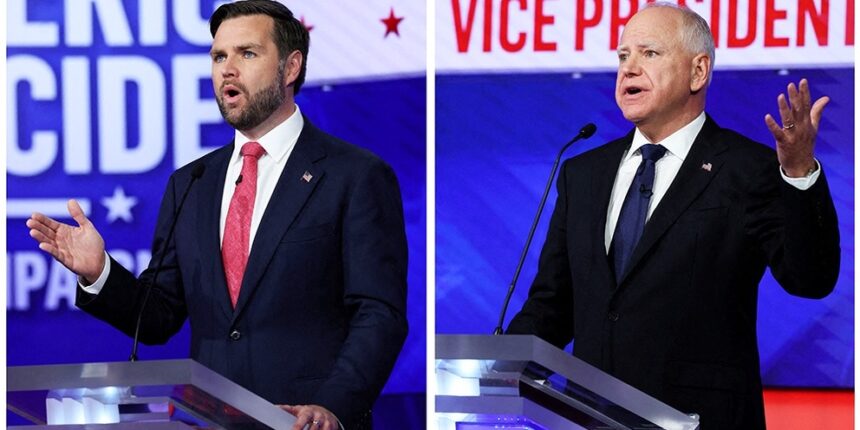Political debates are significant events in any electoral process. They provide a platform for candidates to share their views, outline their policies, and, most importantly, allow the public to make informed decisions about whom they want to support. Whether you are following a local election or a high-profile presidential debate, knowing what time the debate is is crucial so you don’t miss out on any critical moments.
In this guide, we’ll provide an overview of the importance of debates, how to find out the exact time of the discussion, the best ways to watch it, and why these events matter for democracy.
Why Are Debates Important?
Before diving into the details of what time the debate is, it’s essential to understand why these debates are such a big deal. Political debates offer several key benefits for voters and the electoral process:
- Direct Comparison of Candidates: Debates put candidates on the same stage, often needing more time to prepare responses to unpredictable questions. This direct confrontation allows voters to compare their policy positions, speaking abilities, and handling of pressure.
- Clarity on Policies: While campaign ads and speeches are prepared and often lack depth, debates force candidates to explain their positions on specific issues. Voters get to hear about topics ranging from healthcare to climate change, the economy, and national security.
- Showcase Leadership Skills: Debates often reveal how candidates think on their feet. Their ability to answer tough questions, maintain composure, and articulate their thoughts is crucial in determining whether they are capable of leading a country or representing their district.
- Opportunity for Lesser-Known Candidates: In many elections, some frontrunners dominate media coverage. Debates give lesser-known or underfunded candidates a chance to showcase their ideas and connect with voters who may not have heard much about them before.
- Voter Engagement: Political debates can energize voters by offering an interactive and engaging way to participate in the electoral process. People can discuss debate performances with friends, family, and social media, leading to more informed and active citizens.
What Time is the Debate?
The most important question for anyone eager to follow these crucial political events is, “What time is the debate?” Political debates can happen at varying times depending on the election, time zones, and countries involved.
National and Presidential Debates
For primary elections like a presidential debate in the United States, the time is often scheduled for prime-time viewing to maximize audience participation. This is typically between 8:00 PM and 10:00 PM Eastern Time (E.T.). Debates usually last 90 minutes to two hours, providing ample time for candidates to cover a broad range of topics.
For example, during U.S. presidential election cycles, debates usually take place over several weeks leading up to election day. They are traditionally held on weeknights, typically at 9:00 PM ET, ensuring that a large portion of the country can watch after work or school.
Local and Congressional Debates
Debate times may vary more widely on a local or congressional level. Many local debates may take place in the early evening, typically between 6:00 PM and 9:00 PM. Unlike national debates, which are often broadcast on major networks, these debates may be available on local television stations, radio, or streamed online.
International Political Debates
For international debates, it’s essential to pay attention to the local time zone in which the discussion is taking place. For instance, if you are following a debate in Europe, it might take place in the evening local time, which could be the afternoon or early morning in North America. Using world clock applications or checking global news outlets can help clarify what time the debate is in your time zone.
How to Find Out the Exact Time of the Debate
Finding the exact time of a debate can be simple if you know where to look. Here are several ways you can ensure you’re tuned in at the right moment:
- Check Official Campaign Websites
One of the most reliable sources of information about debate times is the official websites of the candidates or parties participating in the debate. Campaign websites often include schedules of upcoming events, including debates, along with details on where and how to watch.
- Tune in to News Networks
Major news networks like CNN, Fox News, MSNBC, BBC, and others will broadcast debates live, especially for high-profile elections. These networks usually promote the debates ahead of time, often running reminders and commercials announcing the debate time in the days leading up to the event.
- Social Media Alerts
Social media platforms like Twitter, Facebook, and Instagram can be valuable tools for determining the time of the debate. Many political organizations and news outlets post countdowns and reminders for major political events, making it easy to stay updated.
- Google Searches
A quick search query like “What time is the debate tonight?” or “When is the next presidential debate?” can provide you with immediate results. Search engines often feature real-time results with accurate information, especially when the event is widely covered.
- Debate Commission Websites
For U.S. presidential debates, the Commission on Presidential Debates (CPD) is the official organization that schedules and organizes these debates. Their website will provide dates, times, locations, and any relevant information about upcoming debates.
How to Watch the Debate
Now that you know what time the debate is, you’ll want to make sure you have a plan to watch it. Here are some popular ways to tune in:
- Television
Television is still one of the most popular ways to watch political debates. Networks like NBC, CBS, ABC, and PBS often carry national debates live. For cable subscribers, networks such as CNN, Fox News, and MSNBC provide live coverage with pre- and post-debate analysis. International news channels like BBC or Al Jazeera may also broadcast debates, especially if they’re of global importance.
- Online Streaming
For those who prefer to watch online, many news websites offer live-streaming services for significant debates. Websites like YouTube, Facebook Live, and Twitter Live also stream these events, sometimes in collaboration with news networks. This option is incredibly convenient for people without cable subscriptions or who want to watch on the go.
- Radio
If you can’t watch the debate but still want to tune in, many radio stations broadcast it live. Public radio stations such as NPR in the U.S. and BBC Radio in the U.K. offer live audio coverage, which can be particularly useful if you’re commuting or working during the debate.
- On-Demand Viewing
If you can’t watch the debate live, many networks and streaming platforms offer on-demand viewing options. This allows you to watch the discussion later at your convenience, and you may even find highlights or analysis clips to help catch up on the most critical moments.
Why Timing Matters for Debates
Knowing what time is the debate is essential for several reasons:
- Staying Informed: Debates often cover critical issues that can influence the way people vote. Being present to watch the discussion live allows you to hear candidates’ views directly and make informed decisions based on real-time exchanges.
- Discussion and Engagement: Watching debates live also will enable you to participate in discussions, either in person or on social media. Being part of the conversation as it unfolds can help you engage with other voters, learn different perspectives, and share your thoughts on the debate’s outcome.
- Keeping Up with Breaking News: Debates often generate headlines and analysis immediately after they conclude. Watching live ensures you’re up to speed with the latest political developments and can stay informed about public reactions and candidate performance.
Conclusion: Never Miss Another Debate
Debates are crucial events that provide a platform for candidates to present their policies and ideas directly to the public. Whether you’re following a local election, a presidential race, or an international political event, knowing what time the debate is ensures you won’t miss out on critical moments that could shape your opinion or voting decisions.
By utilizing resources like campaign websites, news networks, and social media, you can easily keep track of when and where the next debate will be held. Whether you watch television, stream it online, or listen via radio, there are plenty of options to ensure you stay informed and engaged throughout the political process.












